Conflict
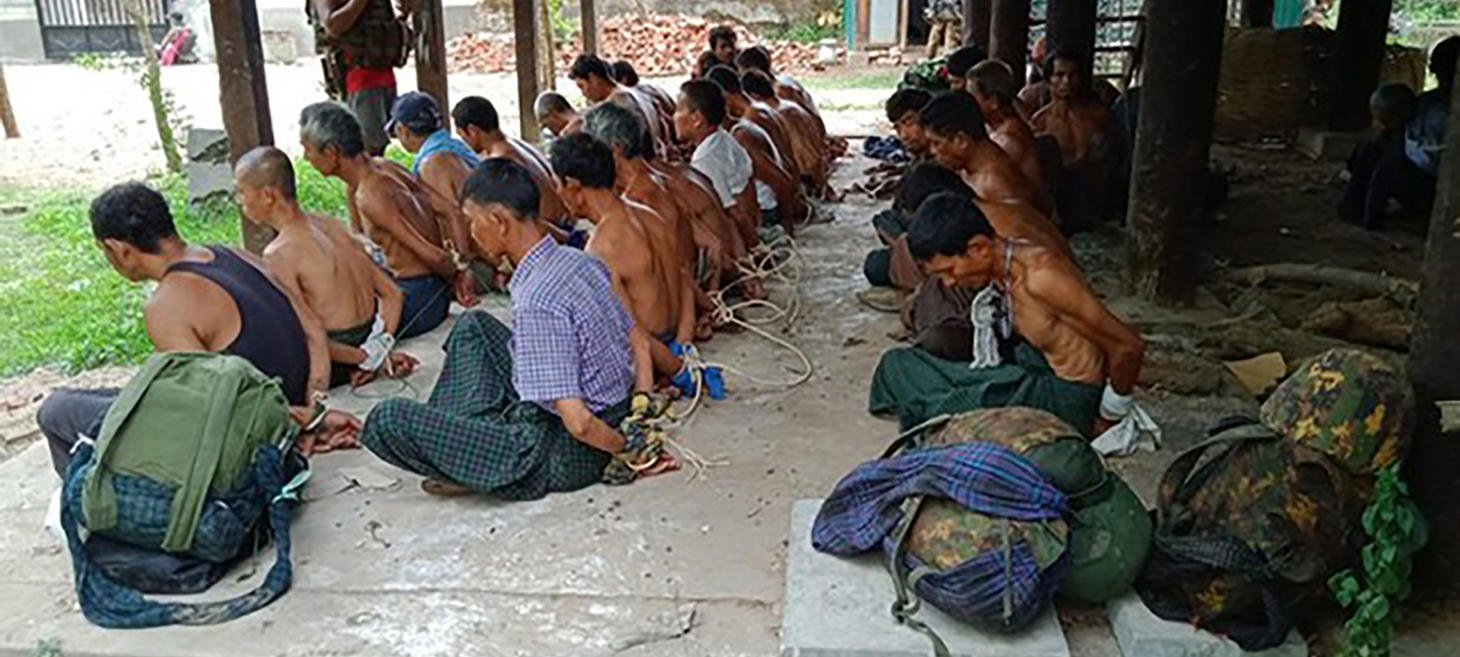
Notorious Ogre Column Commander Seized: Resistance Group
A notorious Myanmar military commander, known for leading the "Ogre Column," has been captured by a resistance group in the ongoing conflict against the junta. This commander was infamous for his brutal tactics and involvement in numerous attacks against civilians and resistance forces. His capture is seen as a significant victory for the resistance, potentially impacting the morale and operational capabilities of the junta's forces. The resistance group responsible for his capture has been actively fighting against the military regime, which seized power in a coup, leading to widespread unrest and violence across the country.
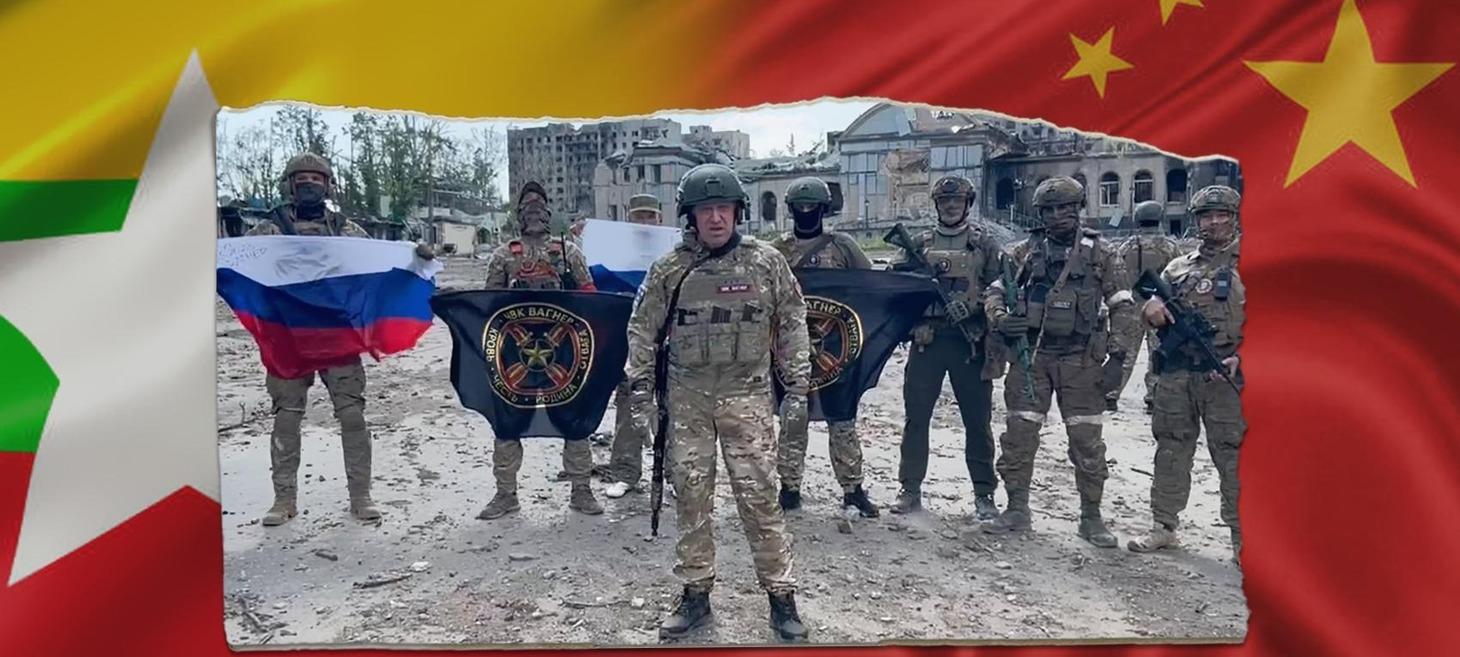
Is Myanmar Junta Turning to Russia’s Wagner as Relations With China Sour?
The Myanmar junta is rumored to be seeking assistance from the Russian Wagner Group, a state-sponsored mercenary organization, to bolster its fight against numerous armed opposition groups since seizing power in February 2021. This speculation arises from a Chinese-language website covering conflicts in northern Myanmar, marking the first instance where the Wagner Group is mentioned in relation to Myanmar. The report suggests that Wagner operatives could enter Myanmar disguised as instructors or security personnel, similar to their operations in other Asian and African nations. Despite the lack of concrete evidence, this development underscores the complex geopolitical dynamics, particularly concerning China's strategic interests in maintaining its influence over Myanmar amidst potential Russian involvement.
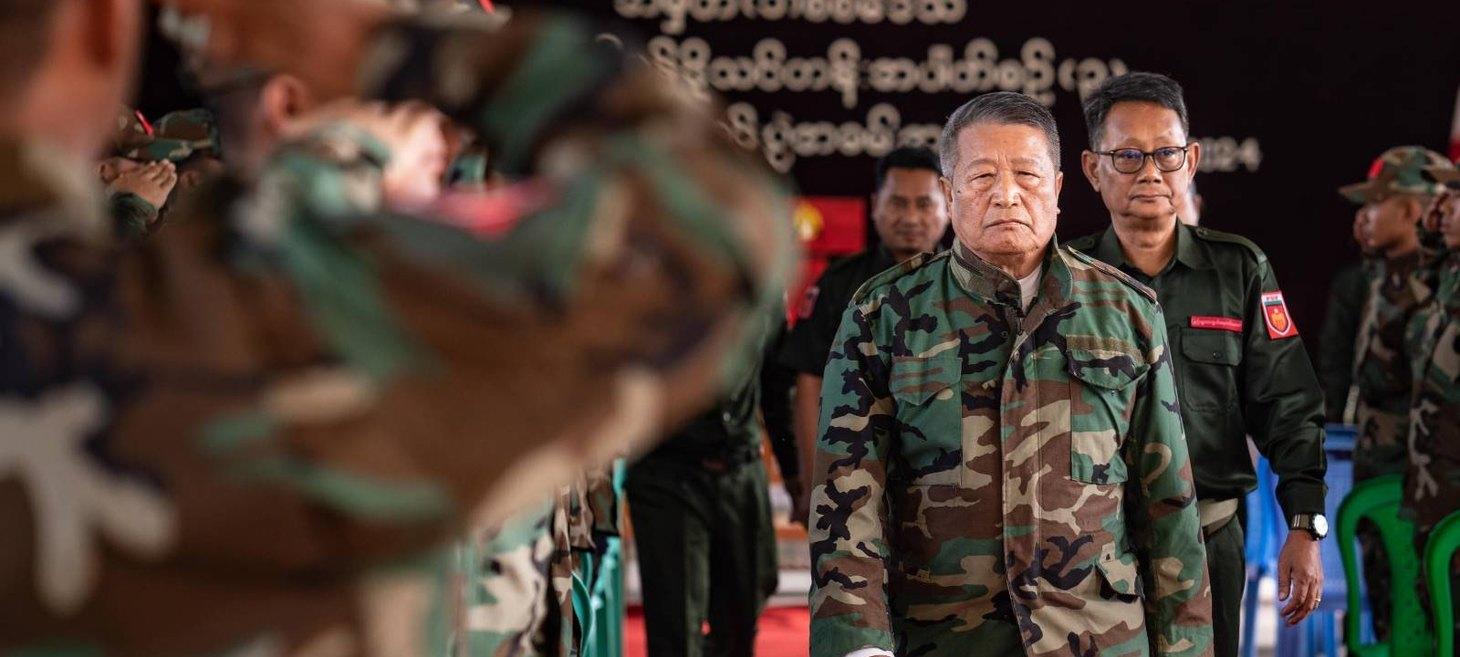
Resistance forces take over Thabeikkyin
Following over a week of intense combat, an alliance of resistance forces successfully captured the gold mining town of Thabeikkyin in the Mandalay Region on August 26, 2024. This victory marks another significant gain for the anti-junta forces, extending their control over a continuous area stretching from northern Shan State to the Ayeyarwady River. The operation, led by the defense ministry of the National Unity Government (NUG), saw the resistance forces advancing on junta positions after previously taking control of Singu, approximately 30 miles downstream. The assault on Thabeikkyin commenced on August 17, with the resistance forces quickly securing most of the town within two days and completing the expulsion of remaining regime forces by August 25.
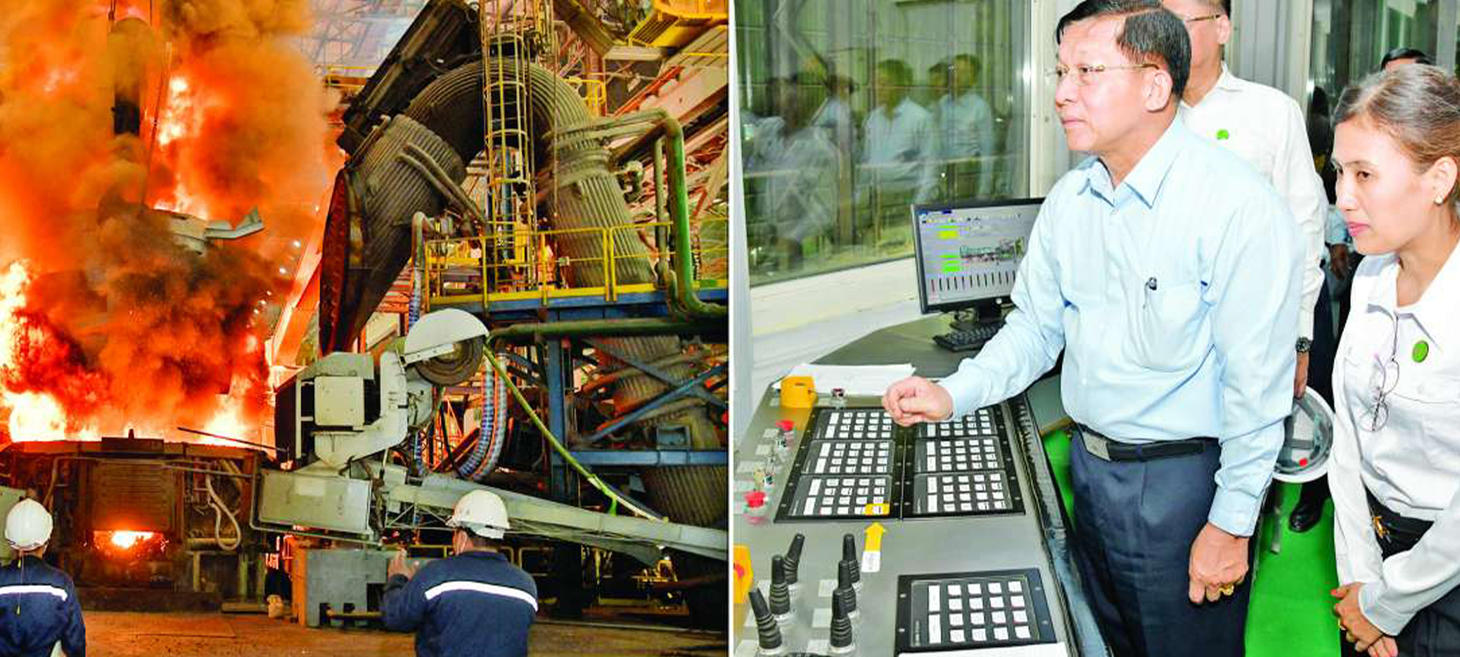
Myanmar Junta Steel Plant Knocked Out by Resistance
In a significant blow to the Myanmar junta's industrial capabilities, a People's Defense Force (PDF) attack on August 16 has halted operations at the No. 1 Steel Mill in Myingyan Township, Mandalay Region. Utilizing 60 mm mortars, the PDF launched around 50 shells at the facility, which was reportedly involved in armaments production and housed approximately 200 junta soldiers. Although the exact casualties and damage remain unconfirmed, the attack has ceased the mill's operations, impacting the junta's efforts to bolster domestic steel production, a sector critical for its military and economic ambitions. This development underscores the escalating conflict between the junta and resistance forces, highlighting the strategic importance of industrial targets in the ongoing struggle for control over Myanmar.
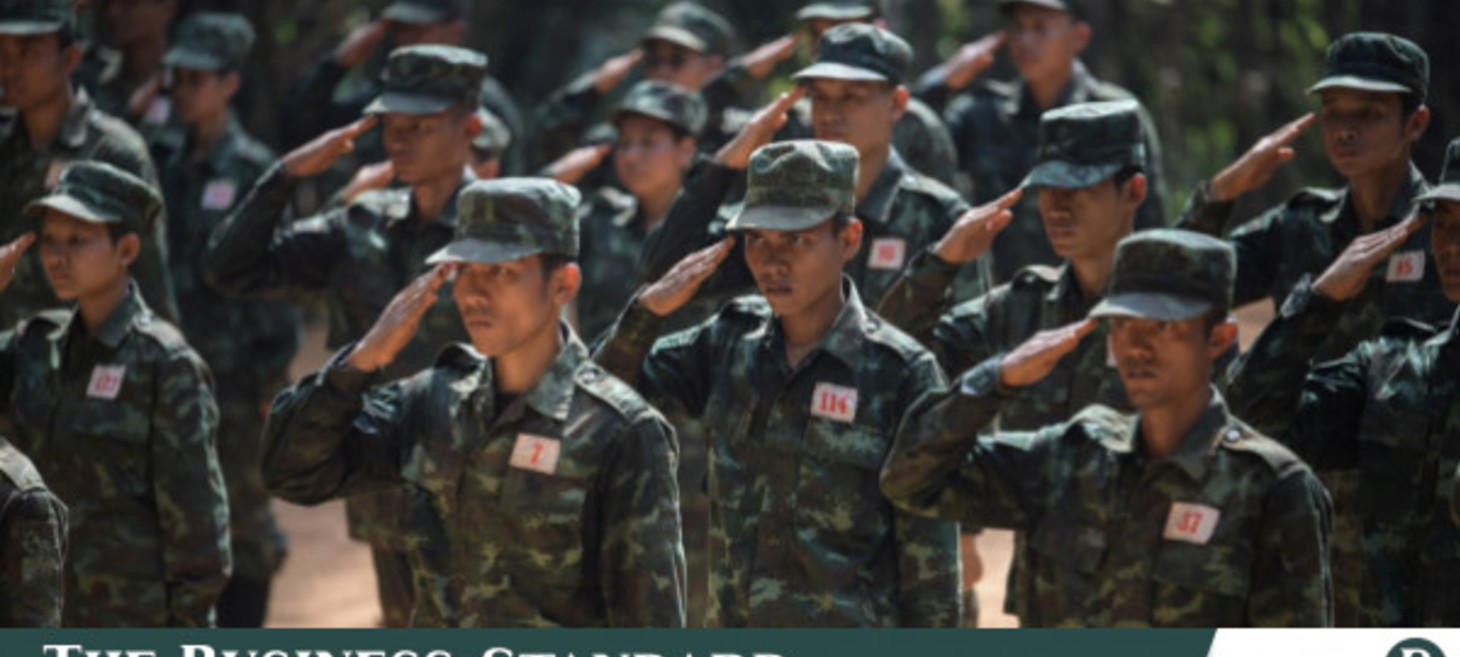
In Myanmar's jungles, young volunteers train hard to fight junta
In Myanmar's jungles, young volunteers are undergoing rigorous training to fight against the military junta, driven by a deep-seated desire to restore democracy and protect their homeland. These trainees, ranging from students to office workers, learn combat skills and guerrilla warfare tactics in makeshift camps hidden within the dense foliage. Despite the risks involved, including potential clashes with the well-equipped military, these volunteers are determined to resist the regime's oppressive rule. Their efforts reflect a broader movement across Myanmar, where civilians are taking up arms to challenge the junta's control, showcasing the lengths to which ordinary citizens are willing to go to secure their freedom and future.
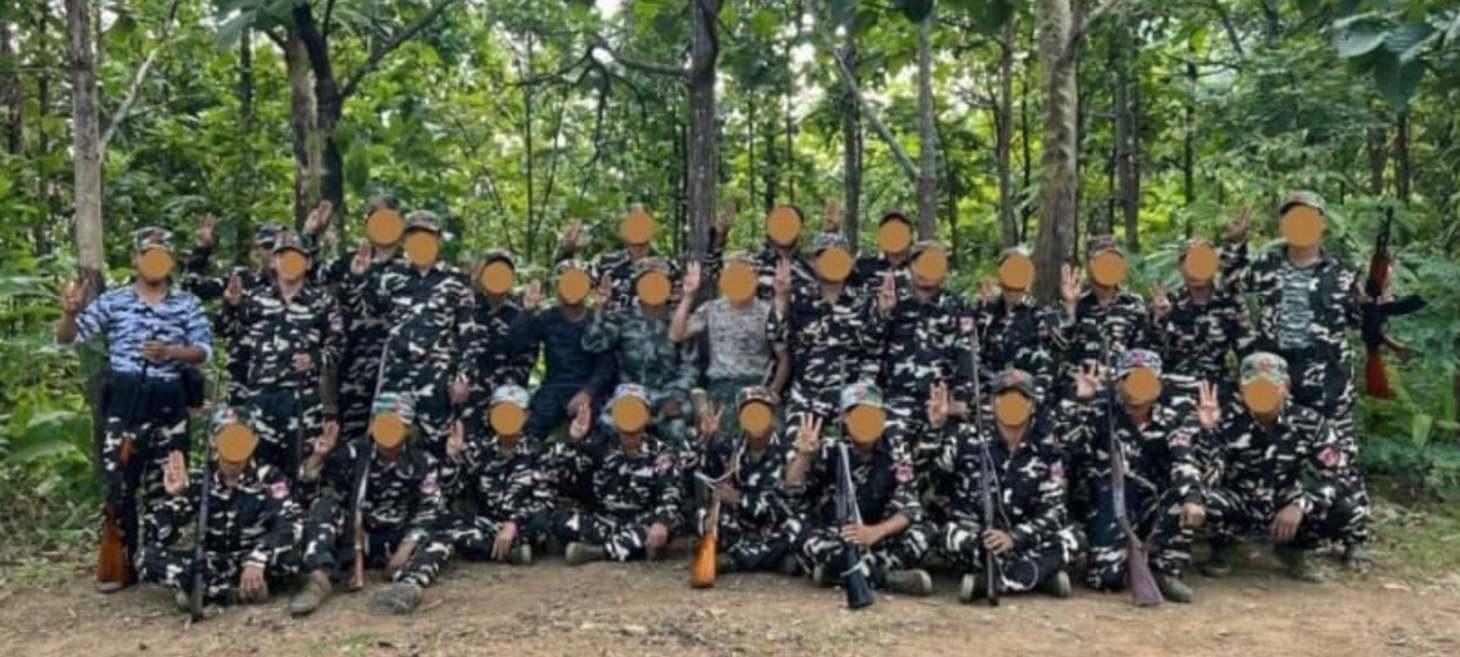
Myanmar resistance forces make territorial advances
Over the past three years, the resistance in Myanmar has significantly strengthened and expanded, with Ethnic Armed Organizations (EAOs) growing to around 120,000 troops since the 2021 coup. The military has lost control of over 60% of its territory in ethnic minority areas, with a reduction in both combat and auxiliary forces. The National Unity Government (NUG) and its allied forces, including the People's Defence Forces (PDFs), have increased their control, particularly in townships bordering India, China, and Thailand, with significant territorial gains reported. The resistance now controls some parts of all townships bordering Thailand and has captured strategic locations like Takaung city. The conflict, marked by at least 17,000 clashes, is among the most intense globally, with the NUG continuing to consolidate military and administrative control in anticipation of further territorial expansions.
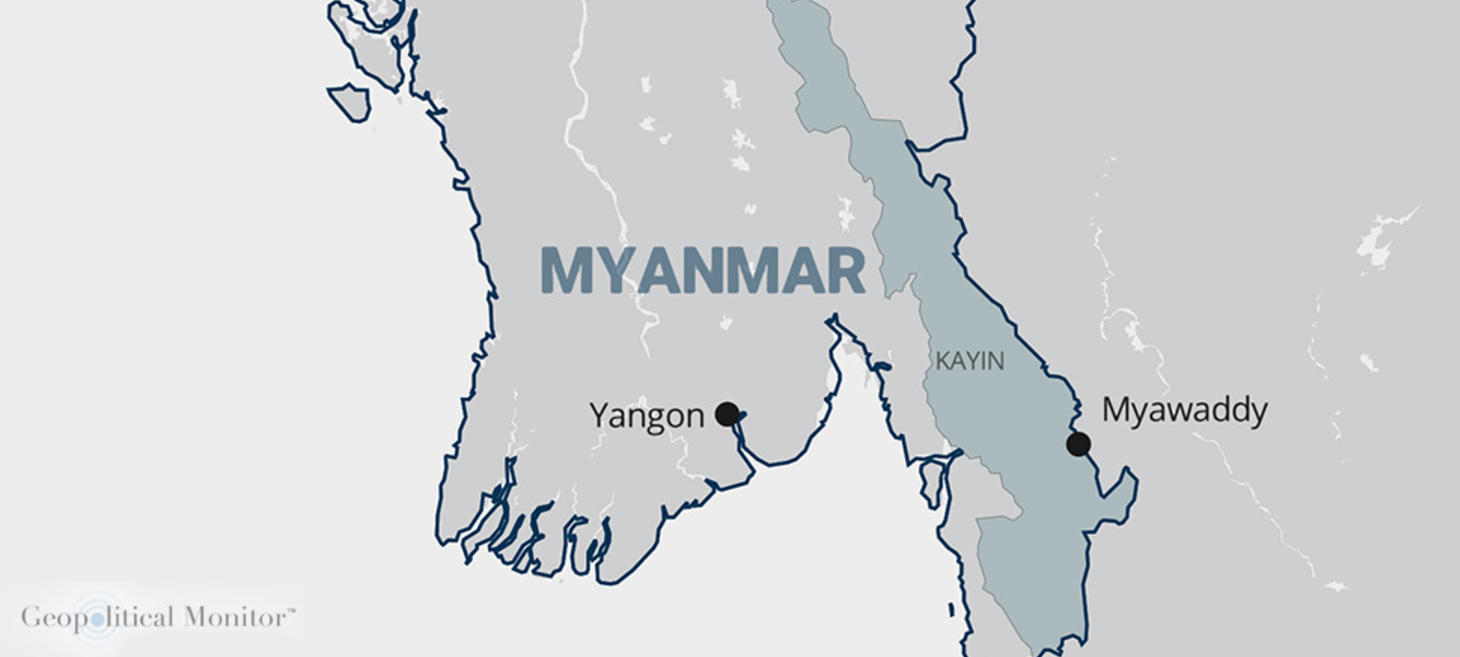
Battle for Myawaddy Reflects Urban Shift in Myanmar Civil War
The ongoing civil war in Myanmar, which escalated significantly after the 2021 coup, is witnessing a strategic shift towards urban centers, exemplified by the intense battle for Myawaddy, a key city near the Thai border in Kayin State. Myawaddy's strategic importance stems from its role as a major import and transit hub for goods, making it a critical economic asset amidst Myanmar's faltering domestic manufacturing and transport sectors. The city has become a battleground involving various stakeholders including the Myanmar military (Tatmadaw), pro-democracy ethnic armies like the Karen National Union (KNU) and the People’s Defense Forces (PDF), as well as transnational crime syndicates and warlords. This urban shift reflects the broader dynamics of the civil war, where control of small towns and cities is increasingly vital due to their economic and strategic value.

Thousands flee after Myanmar rebels use drones to bomb Rohingya villagers
In August 2024, the Arakan Army escalated its attacks on the Rohingya minority in Myanmar's Rakhine State, using drones to bomb villages, which led to a mass exodus of thousands of Rohingya. These attacks occurred as the Arakan Army gained control from the Myanmar military, targeting the Rohingya in areas like Maungdaw and Buthidaung, forcing them to flee to Bangladesh or to other safer locations within Myanmar. The violence has been severe, with reports of villages being shelled, men being rounded up, and many attempting to escape by boat. This recent upsurge in violence against the Rohingya, who have already suffered significant persecution and displacement in recent years, marks a critical and deadly new phase in the conflict, with international intervention and support urgently needed to address the humanitarian crisis.
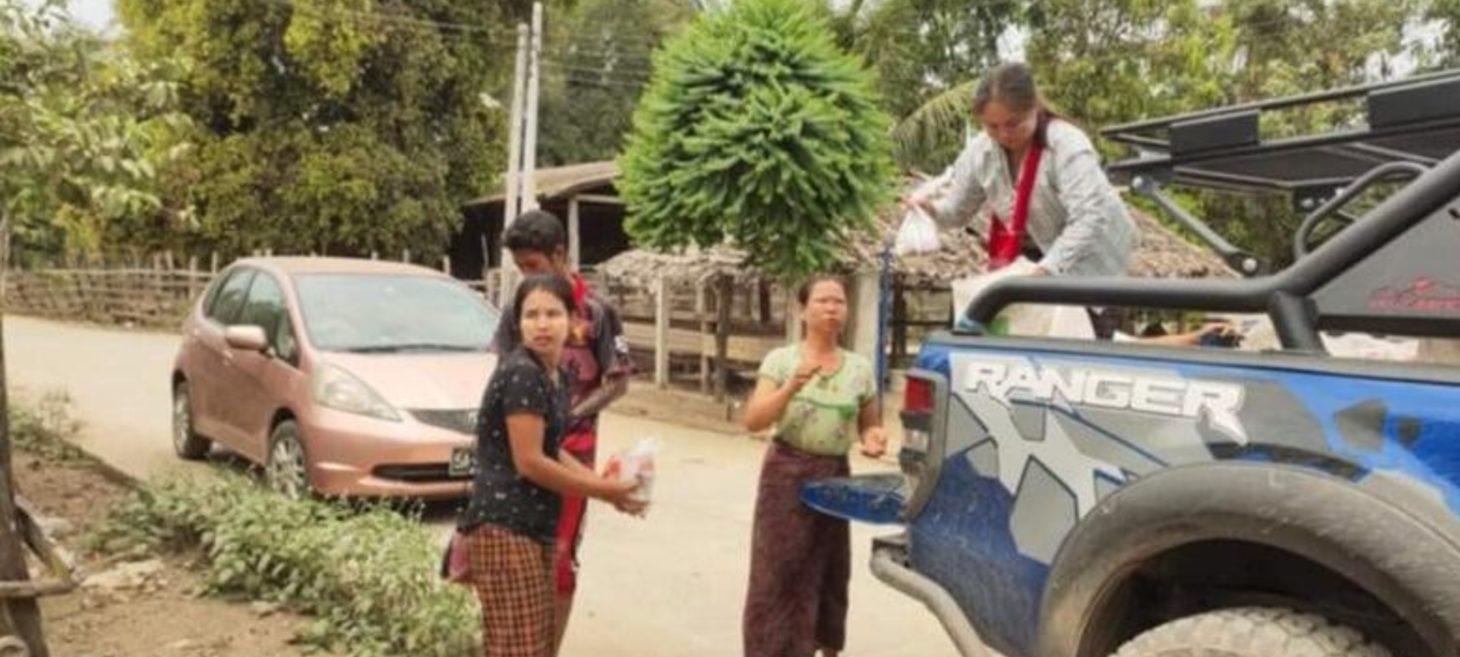
Junta offensive causes villagers to flee to Myawaddy Town
In Myawaddy Town, Myanmar, junta troops have launched an offensive to recapture four strategic bases in Thingannyinaung Village Tract from the Karen National Liberation Army (KNLA) and allied People’s Defense Forces (PDFs). This military action has triggered a significant displacement of civilians, with approximately 2,000 individuals fleeing to Myawaddy Town to escape the conflict. The junta forces, reinforced in July 2024 and supported by the Karen Border Guard Force (BGF), have been conducting aggressive operations, leading to the destruction of villages such as Ywar Thit and Thingannyinaung through airstrikes and bombings. The internally displaced persons (IDPs) are currently sheltered in various locations around Myawaddy, including monasteries and refugee camps, receiving support from local organizations and businesses. Additionally, junta-aligned Karen armed groups are collaborating on security operations in the area, further intensifying the situation.
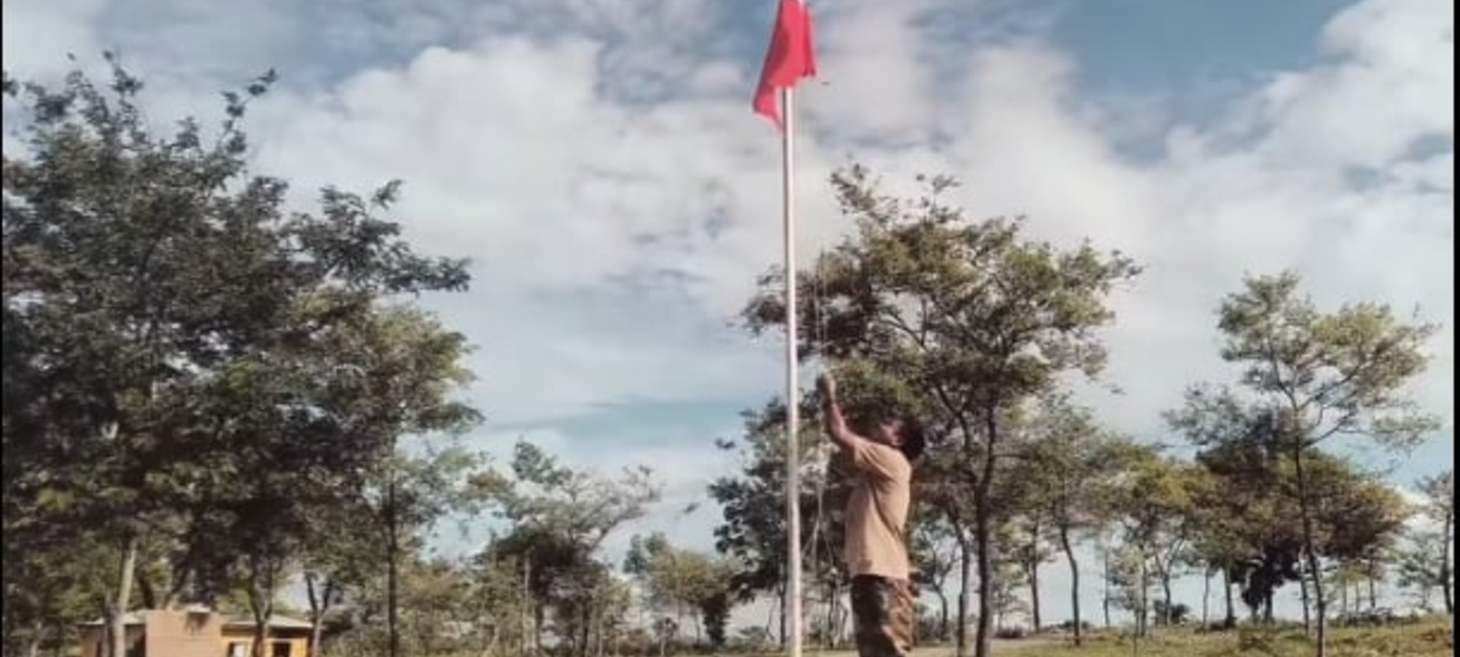
Natogyi People’s Defense Force captures Tada-U Air Defense Base, Myanmar junta troops flee
On August 20, the Natogyi People’s Defense Force (NPDF) successfully captured the Tada-U Air Defense Force Base in Mandalay Region, Myanmar, following a coordinated attack involving Myingyan Battalions 4 and 10, the Tada-U Local Defense Force, and a drone force. The operation, named Myingyan District Special Operation, saw minimal resistance as junta troops retreated rapidly, allowing the NPDF to take control without any casualties on their side and even seize some ammunition. Following the takeover, the base was burned down. On the same day, the military council retaliated by dropping bombs and opening machine gun fire near Kwon Ong village monastery in Natogyi Township, resulting in one civilian death and injuries to four others, including a monk.
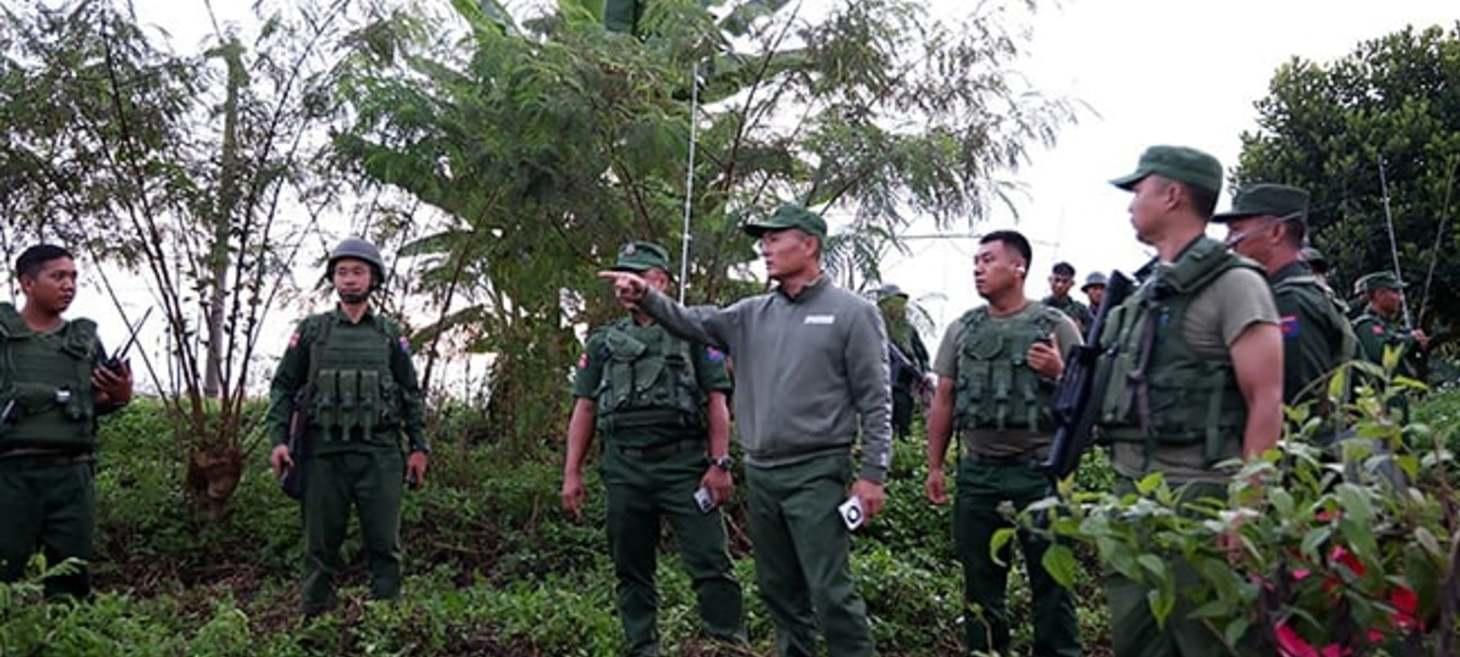
MNDAA pledges to pay for over 30% of costs for rebuilding homes in Lashio following city’s capture
The Myanmar National Democratic Alliance Army (MNDAA) has committed to financially assisting the reconstruction of Lashio, Northern Shan State, by covering over 30% of the costs for homes damaged during recent conflicts. This initiative, announced in August, follows a similar support strategy previously implemented in Hsenwi township. The MNDAA's police department is actively documenting damaged properties and vehicle losses to ensure residents receive the promised aid. Following their takeover, the MNDAA has designated Lashio as Special Region 1, initiating administrative operations and infrastructure rehabilitation, including restoring regular market activities and planning to upgrade the local hospital to international standards. They have also installed free satellite internet to mitigate communication disruptions caused by the offensive. Concurrently, the MNDAA is bolstering its defenses in Lashio while allied forces continue to pressure junta positions in the region.
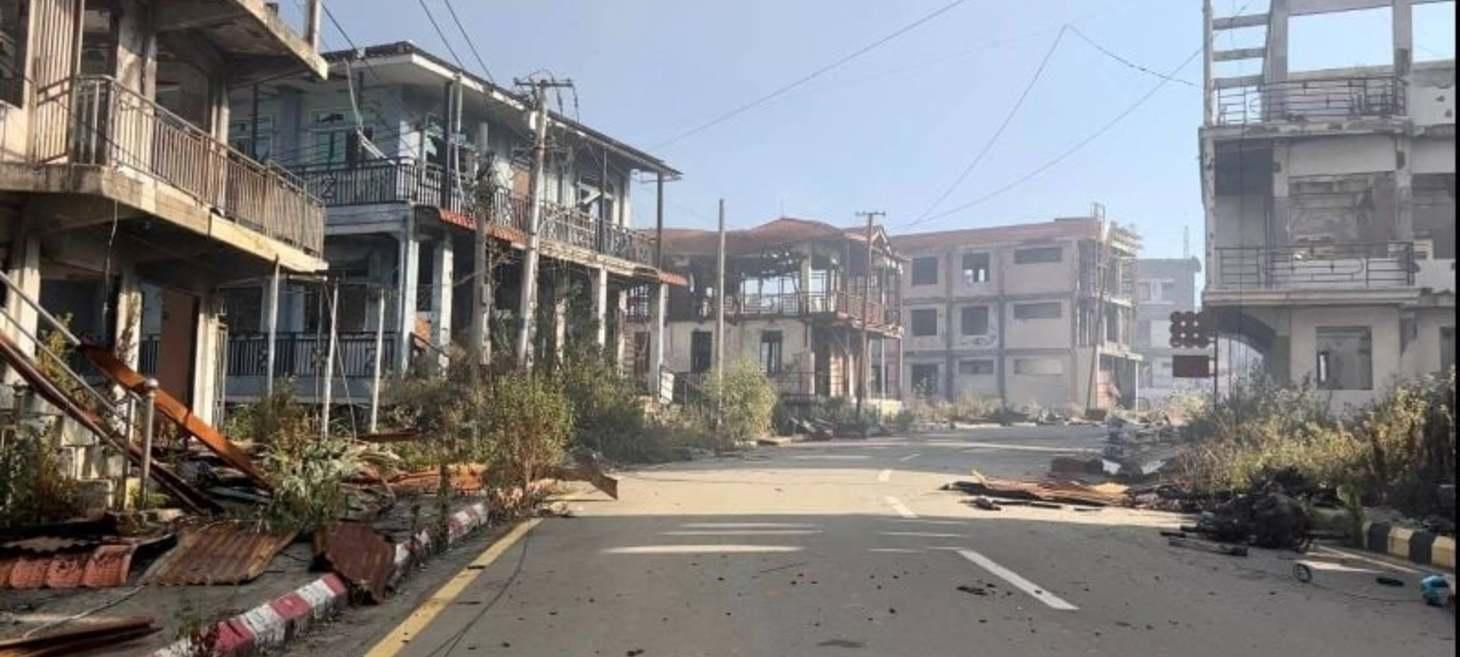
Fierce battle in Thantlang, Myanmar junta forces receive air and artillery support
Fierce fighting has been ongoing in Thantlang town, Chin State, as Chin revolutionary forces under the Government of Chinland clash with junta troops, who have received substantial air and artillery support. The conflict intensified on August 20 when Chin forces initiated a clearance operation to dislodge junta troops entrenched in the town, following their earlier capture of Infantry Battalion 269's camp. Despite the junta's air and artillery reinforcements, including three bombings and ten artillery strikes on August 21, the Chin forces have maintained their offensive, capturing eight junta camps since July 22 and reportedly killing over 30 junta troops. The Government of Chinland has actively supported the front-line efforts, with key ministers visiting to coordinate and bolster the ongoing military actions. Meanwhile, local civilians have been advised to avoid areas near the conflict zones to ensure safety.
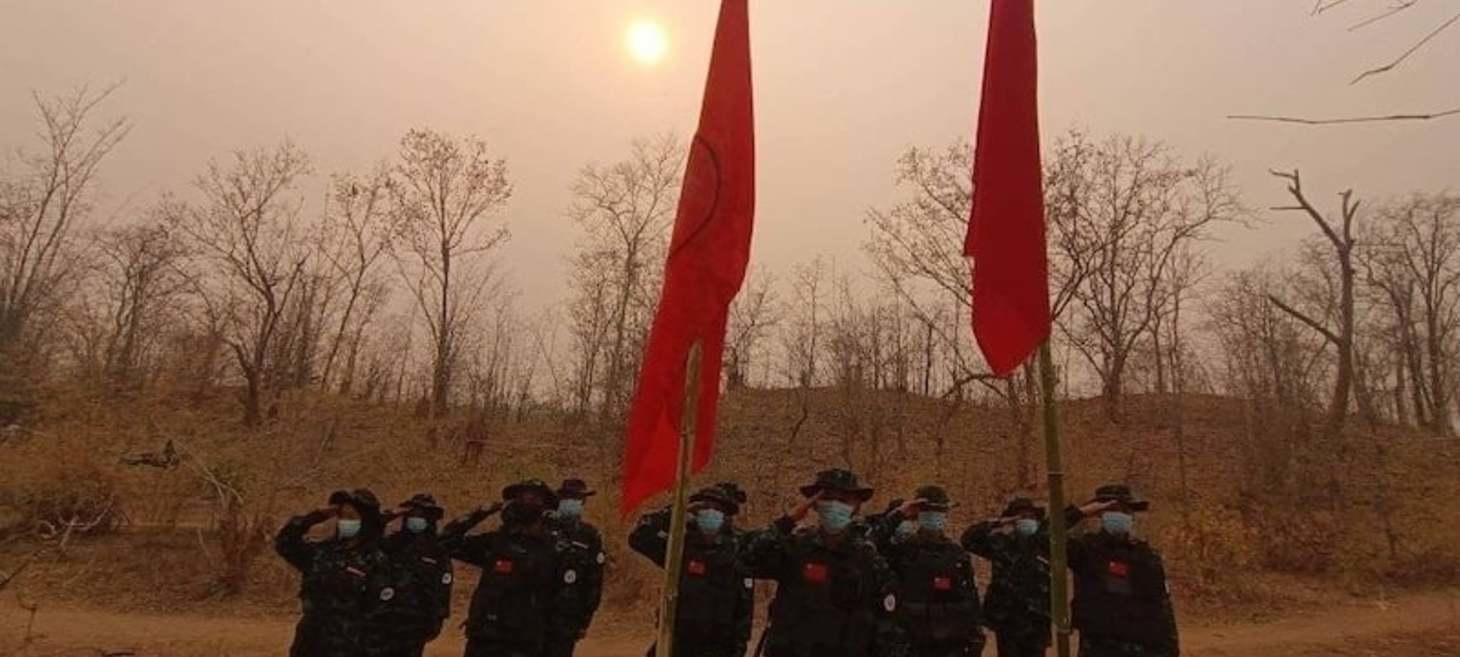
People’s Defense Forces seize two junta camps in Pakokku, Magway Region
On the night of August 21, junta troops and police forces evacuated their positions at the Kyahtoo area and Tha Gyi Taung police outpost in Pakokku Township, following sustained attacks by the People’s Defense Forces (PDF). This retreat allowed the PDF to take control of the camps by the next day. The two outposts, staffed by over 40 personnel, had been frequent targets of PDF operations. After abandoning the posts, the junta forces retreated towards Nyaungjippin village, about 12 miles away. The PDF is currently engaged in clearing operations in the area and released photos showing significant damage to the Kyahtoo police station, highlighting the intensity of the conflict.
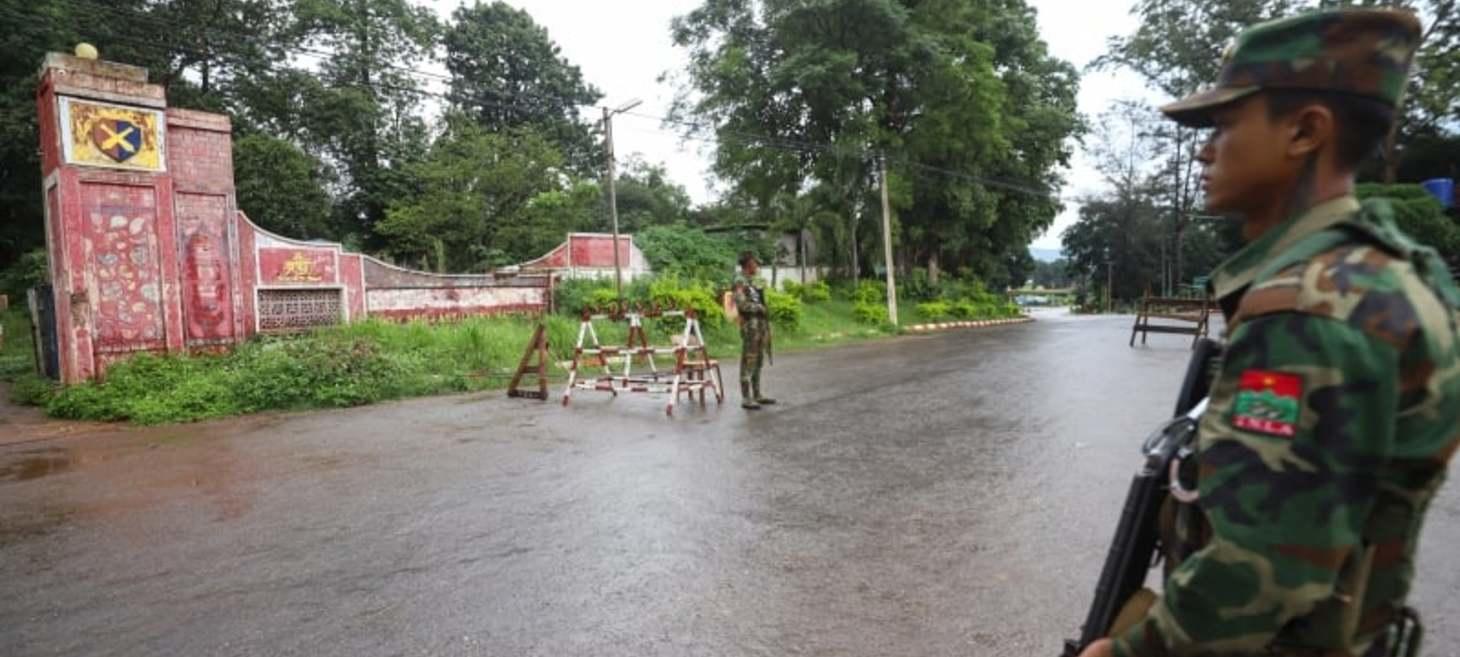
TNLA takes control of Hsipaw town, establishes law enforcement amid ongoing clashes
Since August 12, the Ta’ang National Liberation Army (TNLA) has taken control of Hsipaw town in northern Shan State, including all junta administrative offices and military camps, and is now setting up its law enforcement and administrative systems. Despite securing the town, fierce battles persist around nearby military bases, such as Infantry Battalion 23 and Light Infantry Battalions 503 and 504. The TNLA's takeover followed intense fighting from August 10, part of the broader Operation 1027, which also led to significant civilian casualties and damage, with over 10 civilians killed and 40 injured due to junta's aerial and artillery bombardments. The town has seen a mass exodus, with more than half of its population fleeing the ongoing violence. Additionally, the TNLA has expanded its control to include other towns in northern Shan State and Mandalay Region, consolidating gains from the operation.
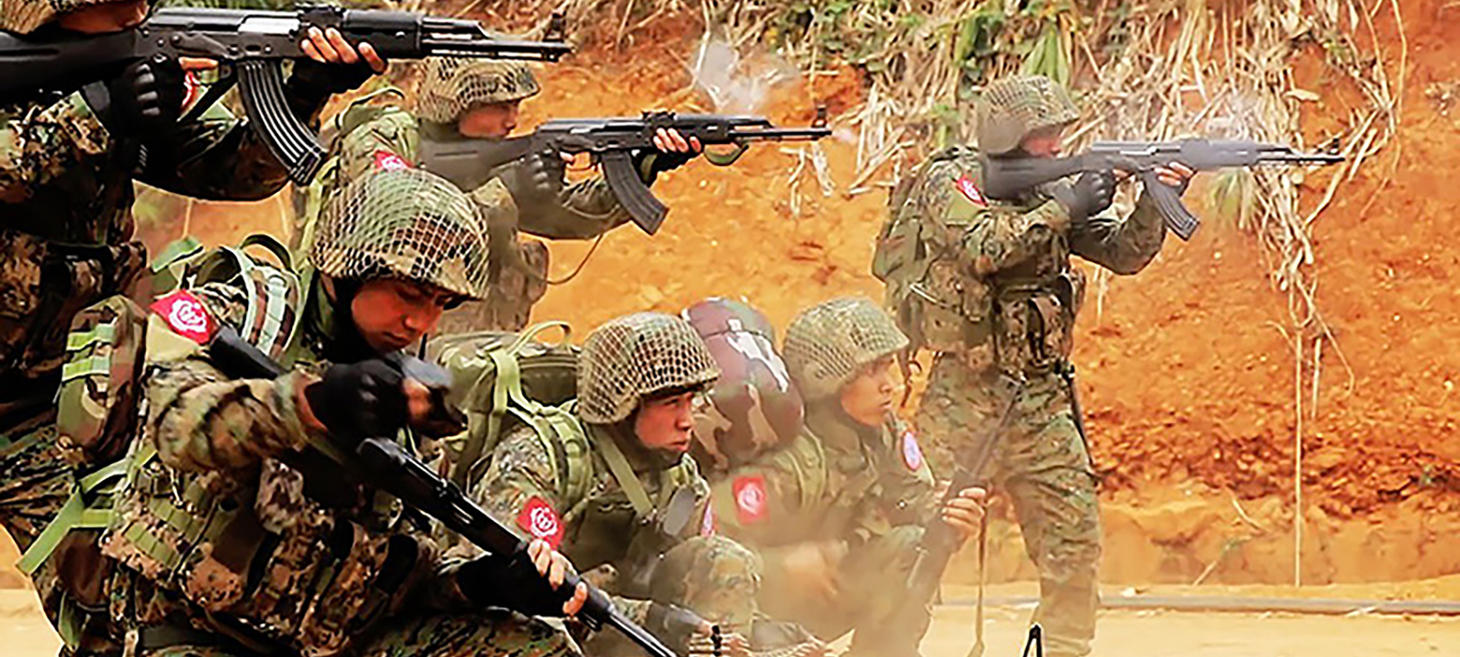
Fighting Flares in Gwa, Southernmost Township in Myanmar’s Rakhine State
Fighting has erupted in Gwa Township, the southernmost area of Myanmar's Rakhine State, involving clashes between the Arakan Army (AA) and Myanmar's military junta. The conflict has intensified following the breakdown of a ceasefire agreement that had been in place since November 2020. The recent hostilities have resulted in civilian casualties and displacement, with reports of artillery shelling affecting local communities. The renewed violence highlights the fragile nature of peace in the region and the ongoing tensions between ethnic armed groups and the military junta.
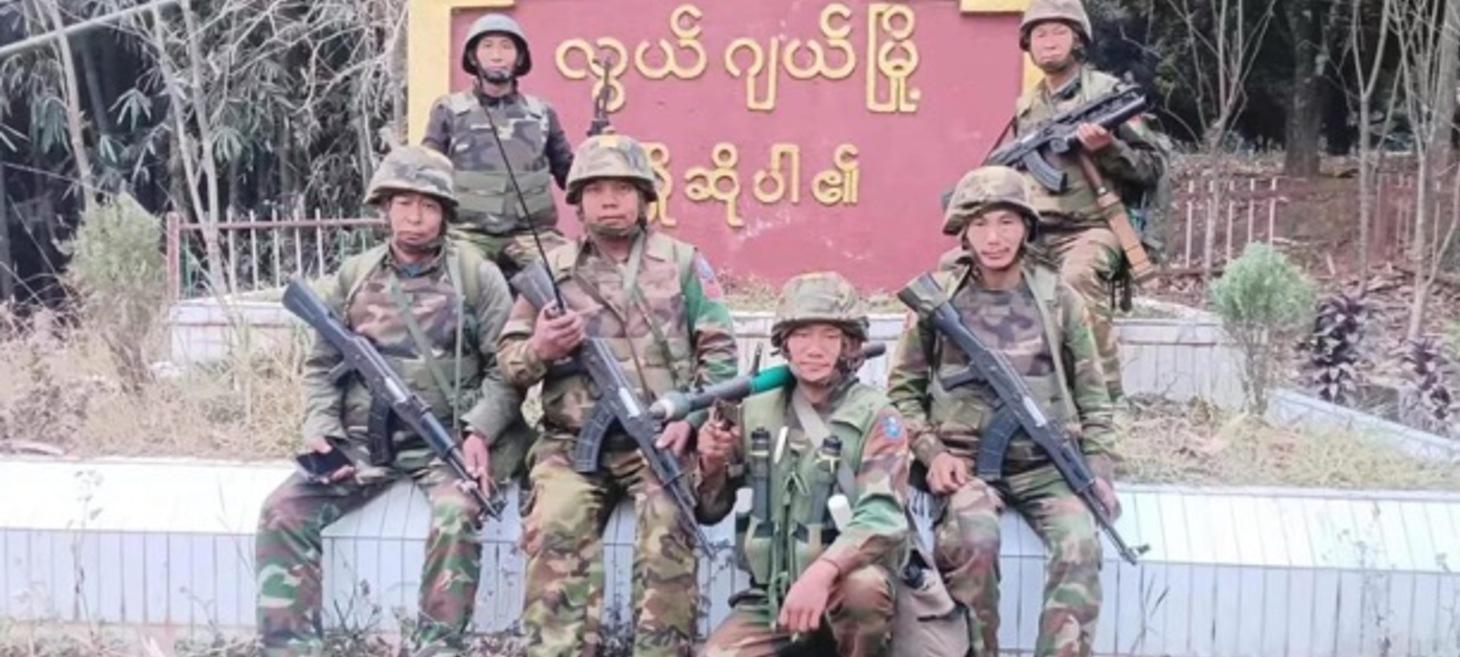
Myanmar junta launches major counteroffensive in southern Kachin State
The Myanmar military junta has initiated a significant counteroffensive in southern Kachin State, targeting the Kachin Independence Army (KIA) and its allies. This military operation involves heavy artillery and airstrikes, focusing on areas such as Hpakant, a region known for jade mining. The offensive is reportedly a response to recent gains by the KIA and allied forces, who have been intensifying their attacks on junta positions. The escalation has led to civilian casualties and displacement, exacerbating the humanitarian crisis in the region. The conflict in Kachin State is part of the broader civil war in Myanmar, which has intensified since the military coup in February 2021, as ethnic armed groups and resistance forces continue to challenge the junta's authority.
Conscription
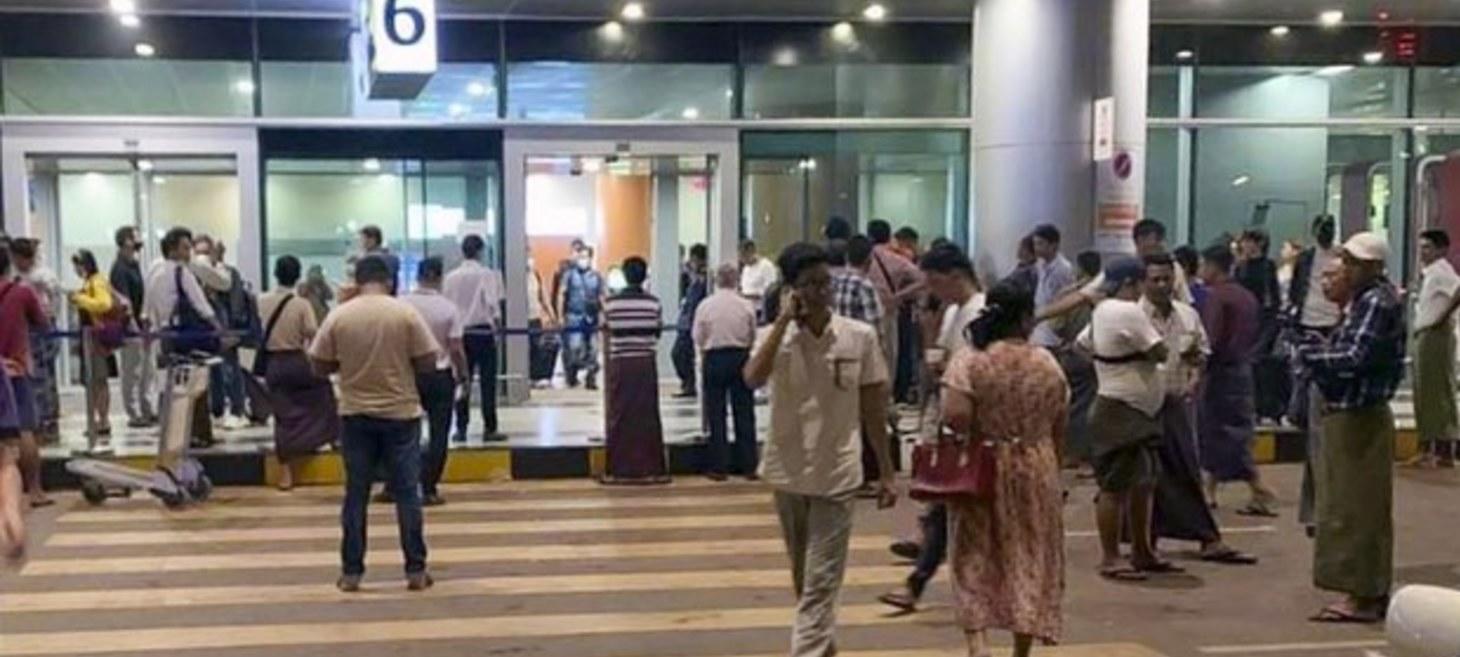
Junta stops 50 young people from departing Yangon airport in single day
In an effort to stem the exodus of its citizens amid ongoing conflict and economic challenges, Myanmar's military junta has tightened restrictions on travel, particularly targeting young adults attempting to leave the country for work abroad. Since mid-August, junta officials have prevented around 50 young individuals aged 23 to 35 from departing Yangon International Airport despite possessing valid passports and travel histories. This crackdown follows a broader pattern of restrictions implemented by the junta, including a temporary ban on men working overseas announced in May due to concerns over military conscription. Airport staff and passengers report stringent checks on travel histories and intentions, with those suspected of leaving for employment being turned away even if they hold return tickets. These measures reflect the junta's attempts to control the outward flow of citizens amidst escalating civil unrest and economic downturn, exacerbating the challenges faced by Myanmar's displaced populations seeking safety within the country.
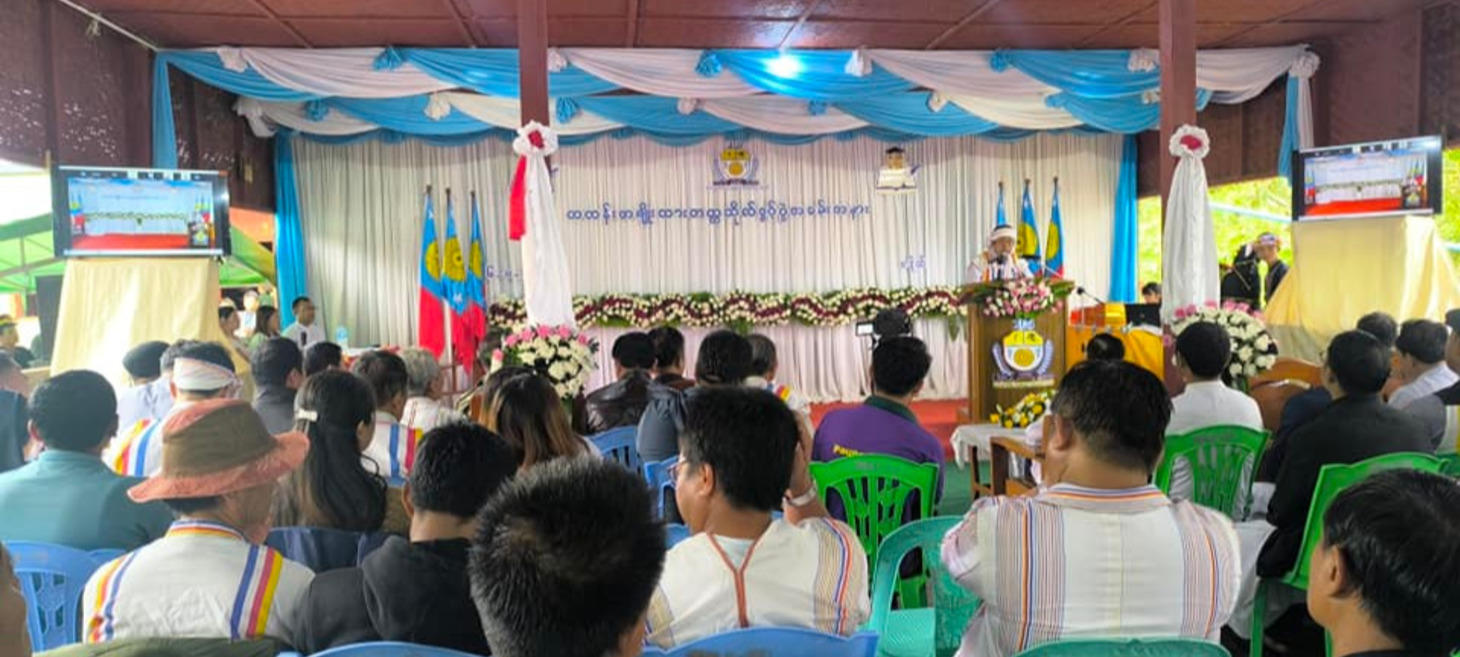
NDA-K junta-aligned militia increases forced conscription
Since early July 2024, the New Democratic Army Kachin (NDA-K), a junta-aligned militia, has intensified its forced conscription efforts in Chipwi and Pangwar towns in Kachin State, Myanmar. Led by Zahkung Ting Ying, the NDA-K has been targeting young people and adults up to 35 years old, forcibly recruiting them from their homes, workplaces, and even directly from the streets. This aggressive conscription campaign has significantly disrupted daily life, instilling fear among the residents, restricting their movement, and complicating their economic activities, especially as commodity prices have soared. The situation is further exacerbated at the rare earth mining sites controlled by the NDA-K, where a significant number of workers have been conscripted, highlighting the militia's exploitation of local resources and labor for its operations.
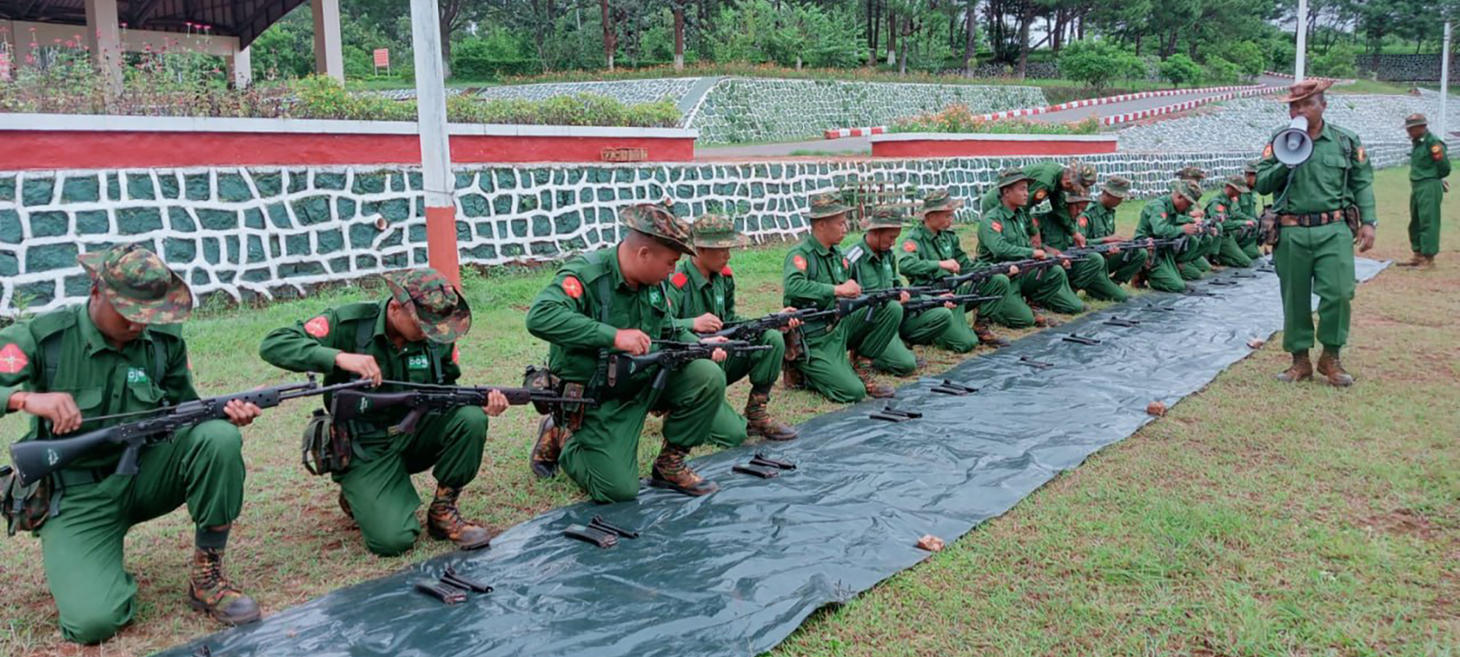
Depleted Myanmar Military to Recruit Men Aged Over 35 for ‘Security’ Teams
Due to a depletion in its ranks, the Myanmar military is expanding its recruitment criteria to include men over the age of 35 for security teams. This move indicates a significant shift in the military's recruitment strategy, traditionally focused on younger individuals, reflecting the ongoing pressures and manpower shortages faced by the military amid intensifying conflicts across the country. This adjustment aims to bolster the military's capabilities as it continues to confront widespread resistance and security challenges.
Crime & Narcotics

Yoma Strategic Questioned by SGX Regulators Over Irrawaddy Report
Singapore-listed conglomerate Yoma Strategic Holdings (Yoma) has been under scrutiny by the Singapore Stock Exchange (SGX) following allegations reported by The Irrawaddy on August 17, which claimed that Yoma's founder, Serge Pun, faced charges of money laundering and other financial crimes in Myanmar. Yoma responded to SGX inquiries, confirming that no charges had been filed against Pun until his resignation on July 24, 2024. The company also denied allegations that funds from online scam centers were used to fund its Star City project. This marks the third time since July 10 that Yoma has been questioned by SGX, with additional inquiries from the Securities Investors Association (Singapore) regarding its annual report.
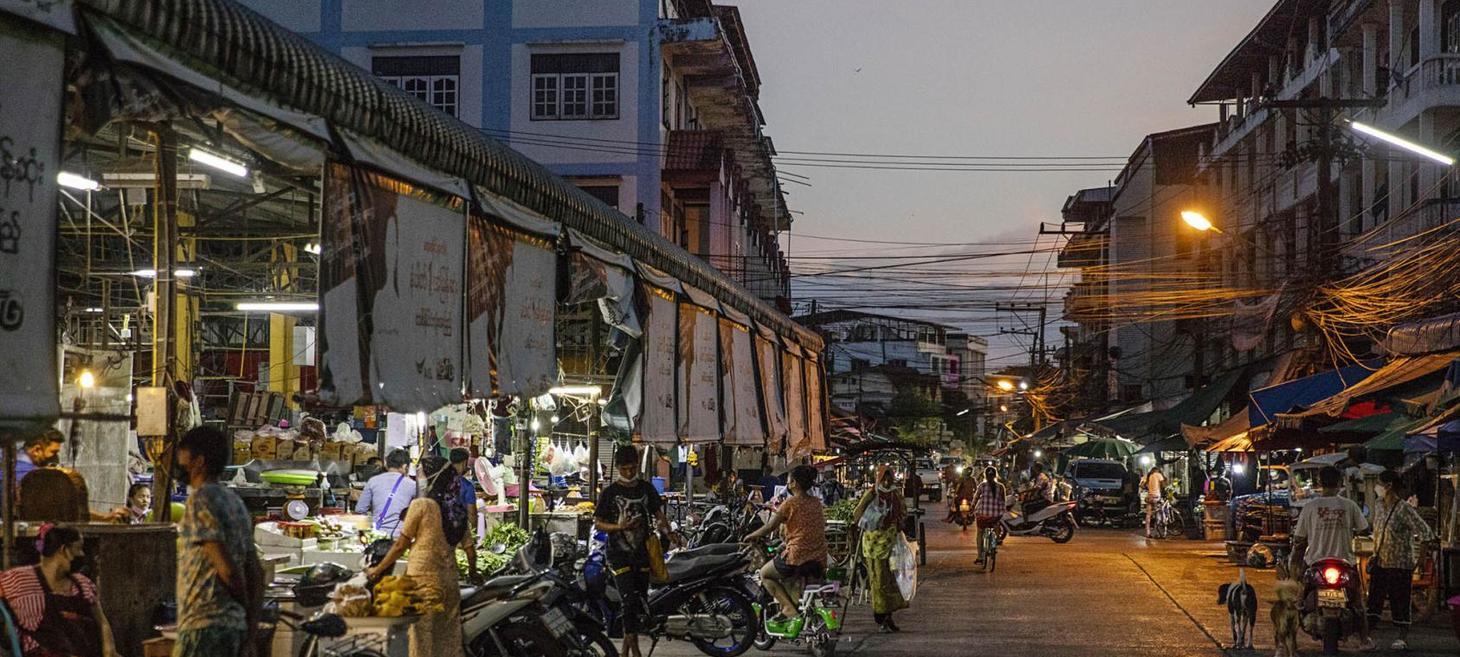
Southeast Asia Web Scams Reach U.S., Setting Off Alarms for Law Enforcement
International criminal networks based in Southeast Asia, particularly in ungoverned regions of Myanmar, Cambodia, and Laos, are increasingly targeting Americans with sophisticated web-based investment scams, posing a significant threat to U.S. citizens' security and well-being. These scams, facilitated by forced labor and exploiting vulnerabilities in digital communications, have resulted in billions of dollars in losses annually. A coordinated international response is essential to combat this growing menace, beginning with efforts in Southeast Asia. However, the United States must also organize a domestic strategy involving law enforcement, cybersecurity agencies, civil society organizations, and media to prevent and disrupt these scams. Operation Shamrock, a public-private partnership aimed at sharing information and raising awareness about these scams, serves as a model for such efforts, highlighting the importance of a multidisciplinary approach to protect against these criminal activities.

Lao, Chinese Officials Detain 771 in Raid on Golden Triangle Gambling Hub
In a significant crackdown on illicit activities, Lao and Chinese security forces detained 771 individuals in the Golden Triangle Special Economic Zone (GTSEZ) in Bokeo province, Laos, which is notorious for various criminal operations, including online fraud that heavily involves trafficked labor. This operation, which began on August 12, targeted unauthorized "call centers" involved in scams ahead of a Lao government deadline to shut these operations by August 25. The detainees included a mix of nationalities, and many low-level workers were deceived into scam roles. Despite these efforts and previous raids, the structural and jurisdictional autonomy of the GTSEZ, controlled by Chinese businessman Zhao Wei, suggests that such criminal activities might persist, shifting to other regions if necessary.
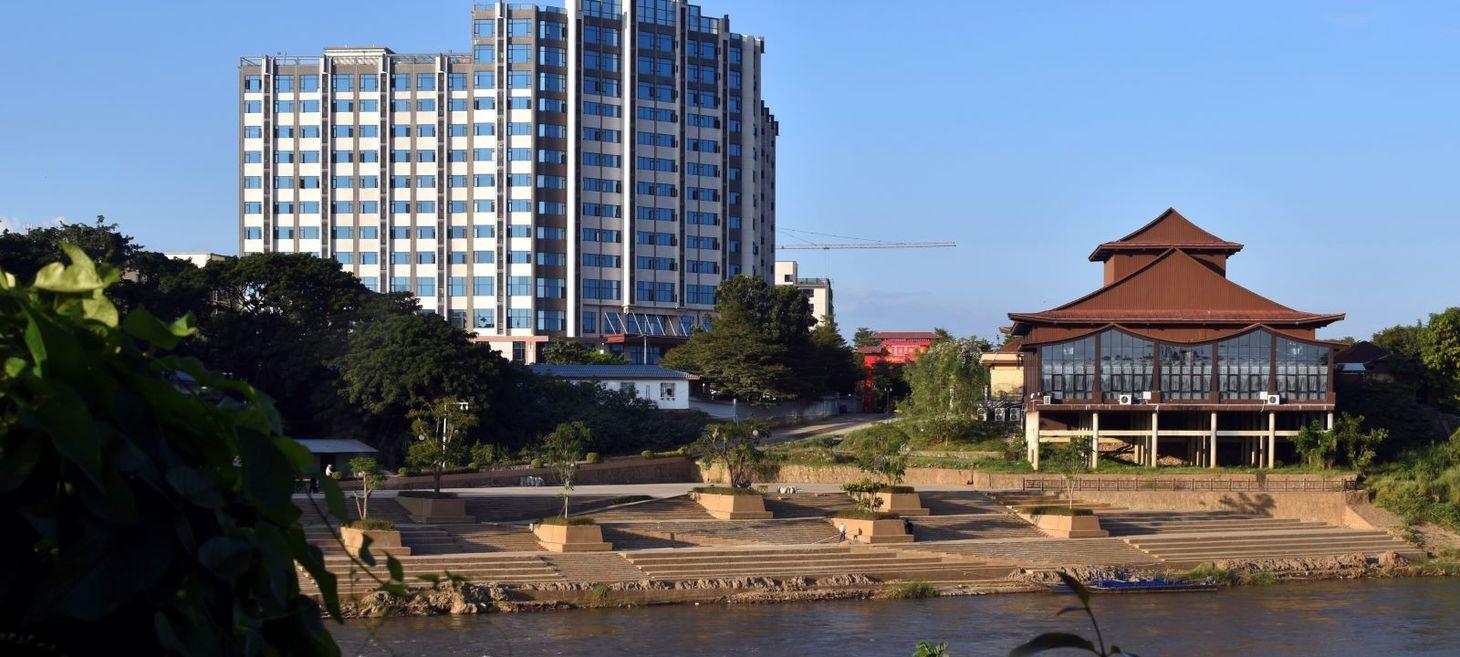
‘A global monster’: Myanmar-based cyber scams widen the net
The cyber-scamming industry in Myanmar, which has flourished in the chaos following the 2021 military coup, has become a severe global issue involving human trafficking and forced labor. This industry, initially fueled by the COVID-19 pandemic and the decline of traditional gambling hubs, has evolved into a multi-billion dollar enterprise. Scammers, often victims of trafficking themselves, are forced into scam operations located primarily in border zones controlled by armed groups. These operations have expanded their target demographic beyond Mandarin speakers to include a global audience, exploiting victims through sophisticated online fraud schemes known as "pig butchering." Efforts to combat these scams are hindered by Myanmar's complex geopolitical and social landscape, where lack of rule of law and economic instability provide fertile ground for such criminal activities. Despite international attention and some rescue operations, the scale of the crisis calls for a more coordinated global response to address and dismantle these exploitative networks effectively.
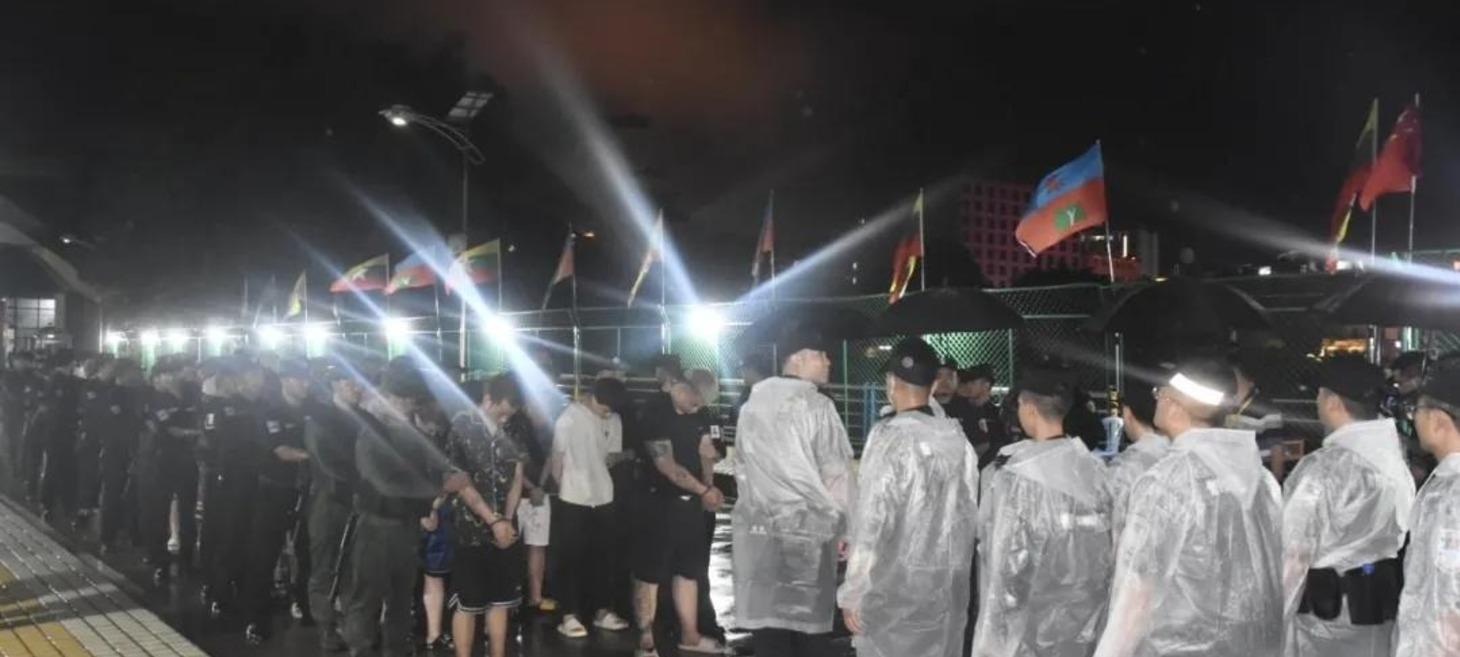
UWSA hands 300 telecom fraud suspects to Chinese Authorities
On August 16, 2024, the United Wa State Army (UWSA) in the Wa Self-Administered Division of Shan State, Myanmar, apprehended 308 Chinese nationals involved in online telecom fraud operations. These individuals were subsequently handed over to Chinese authorities through a land crossing, along with seized computers and related equipment. This action represents the largest single operation against telecom fraud conducted by the UWSA this year. Additionally, nine other Chinese nationals suspected of managing these fraudulent activities were extradited to China on August 17 and 19. These efforts are part of a broader initiative by the Three Brotherhood Alliance to dismantle online fraud operations along the China-Myanmar border, reflecting increased regional cooperation against cybercrime.
Economy

Sembcorp power plant in Mandalay, Myanmar resumes operations
Sembcorp Industries has restarted operations at the Sembcorp Myingyan Independent Power Plant in Mandalay, Myanmar, after a brief suspension due to nearby conflicts. The decision to resume operations, effective from August 23, follows an assessment indicating that the situation had stabilized and was deemed safe for personnel to return. This move aligns with Myanmar's state-owned Electric Power Generation Enterprise and reflects Sembcorp's commitment to monitoring the evolving situation closely, prioritizing the safety of its staff. Despite the temporary halt, Sembcorp confirmed that the suspension did not materially affect its earnings per share or net tangible assets per share for the financial year ending December 31.
Foreign Affairs
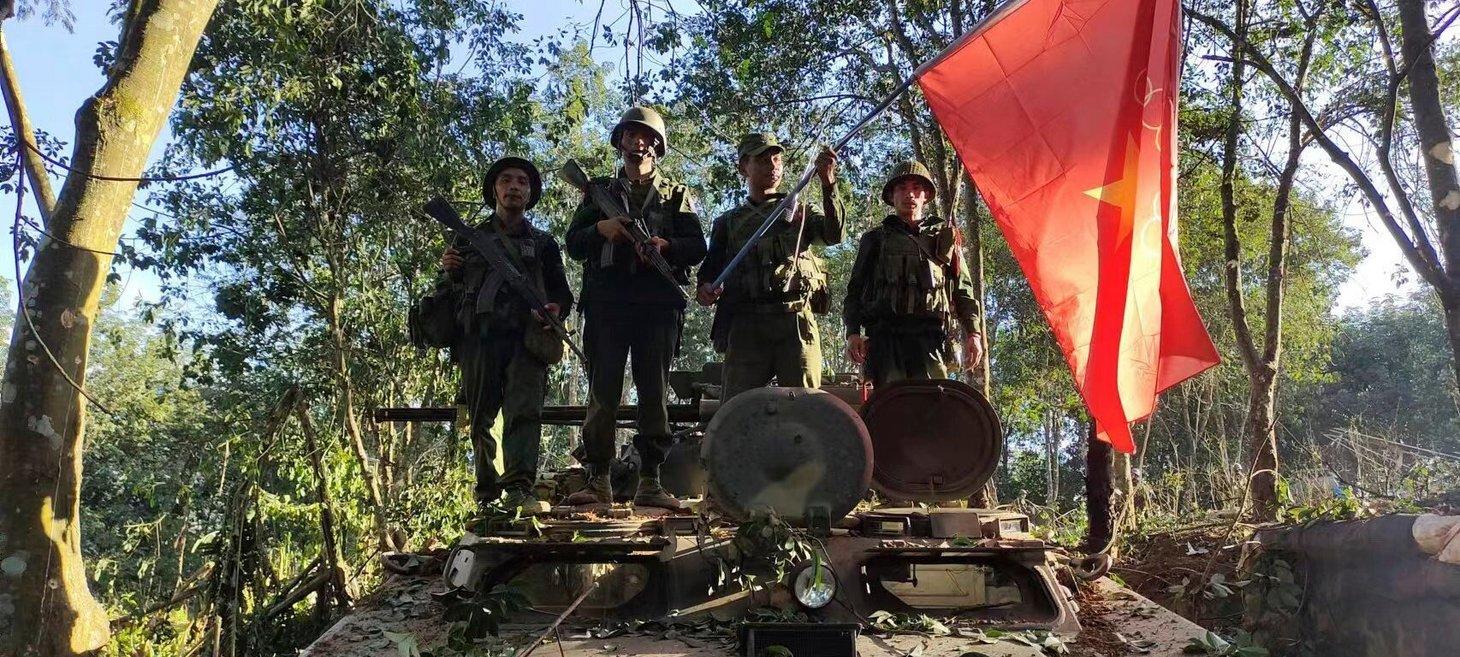
China steps up armed patrols on border as Myanmar conflict deepens
Amid escalating conflict in Myanmar's Shan State, China has intensified military and police patrols along its western border with Myanmar, focusing on towns like Ruili and Zhenkang. This move comes in response to artillery shells landing in Chinese territory, injuring residents and damaging buildings. The conflict in Shan State has worsened since ethnic armed groups allied against the military regime, leading to a breakdown of a Beijing-brokered truce in June and subsequent territorial gains by the armed groups. Despite the military's countermeasures, including bombing raids and drone attacks, the situation remains volatile, prompting China to bolster its border security and affirm its commitment to restoring peace and stability in Myanmar.
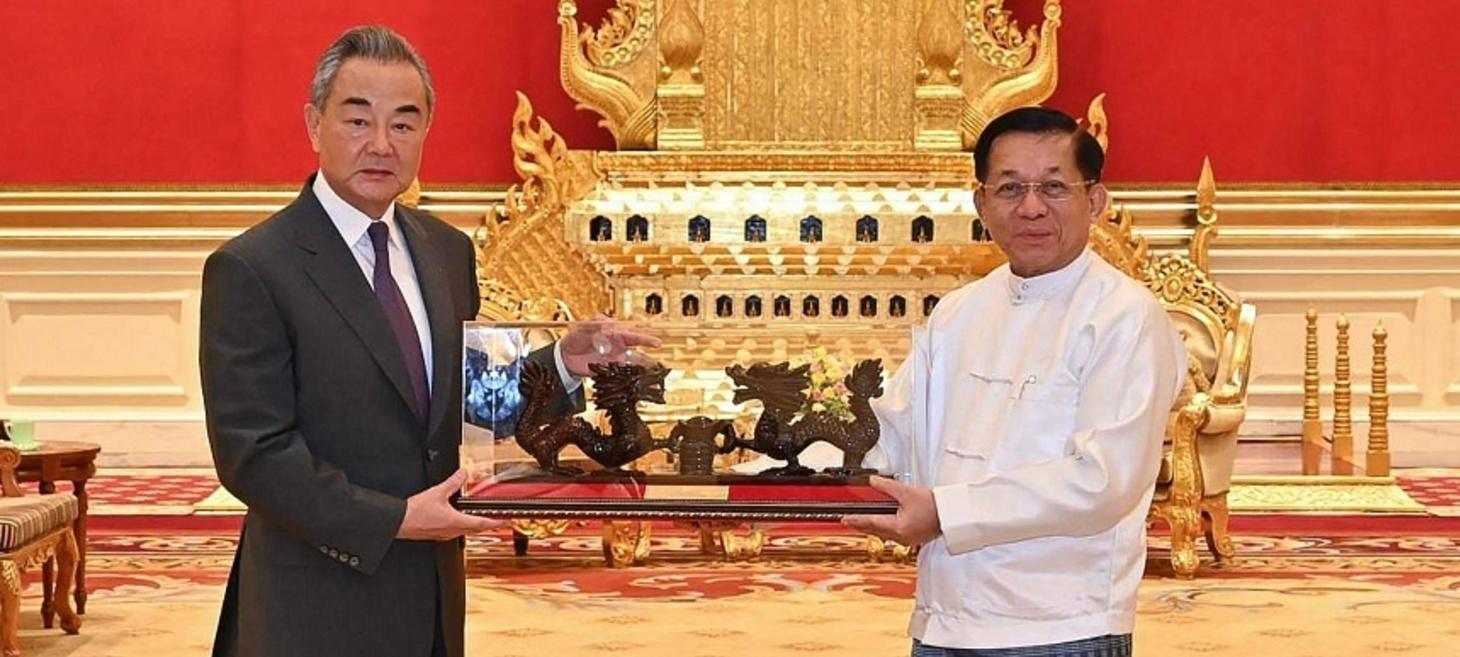
Why is China still supporting Myanmar’s junta, even as the latter loses ground to resistance forces?
China continues to support Myanmar's military junta despite the junta's significant territorial losses to resistance forces, as evidenced by a high-profile meeting between China's top diplomat Wang Yi and Myanmar's junta chief Min Aung Hlaing in Naypyitaw on August 14, 2024. This ongoing support comes shortly after resistance forces captured Lashio, a major regional command, highlighting the junta's weakening grip on power. China's unwavering backing underscores its strategic interests in Myanmar despite the junta's diminishing control over the country.
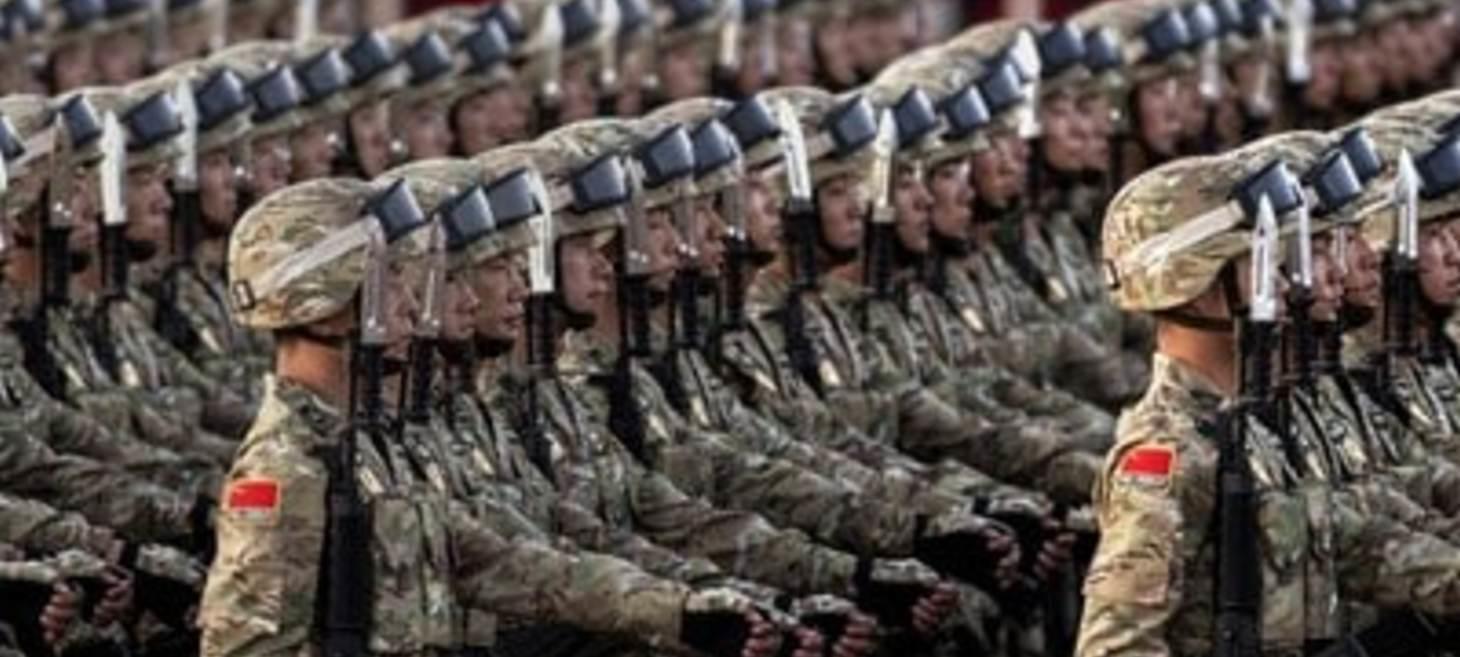
Why is China set to hold live-fire military drills along Myanmar border?
In response to escalating security concerns along its border with Myanmar, China has conducted two live-fire military drills in April 2024. These exercises are part of China's strategic response to the ongoing crisis in Myanmar, where violence has surged, particularly highlighted by recent significant territorial losses by Myanmar's military junta. The drills underscore China's intent to maintain stability and safeguard its interests in the region amidst the Myanmar turmoil and broader maritime disputes, which were also topics of discussion in recent ASEAN meetings that included both U.S. and Chinese representatives.
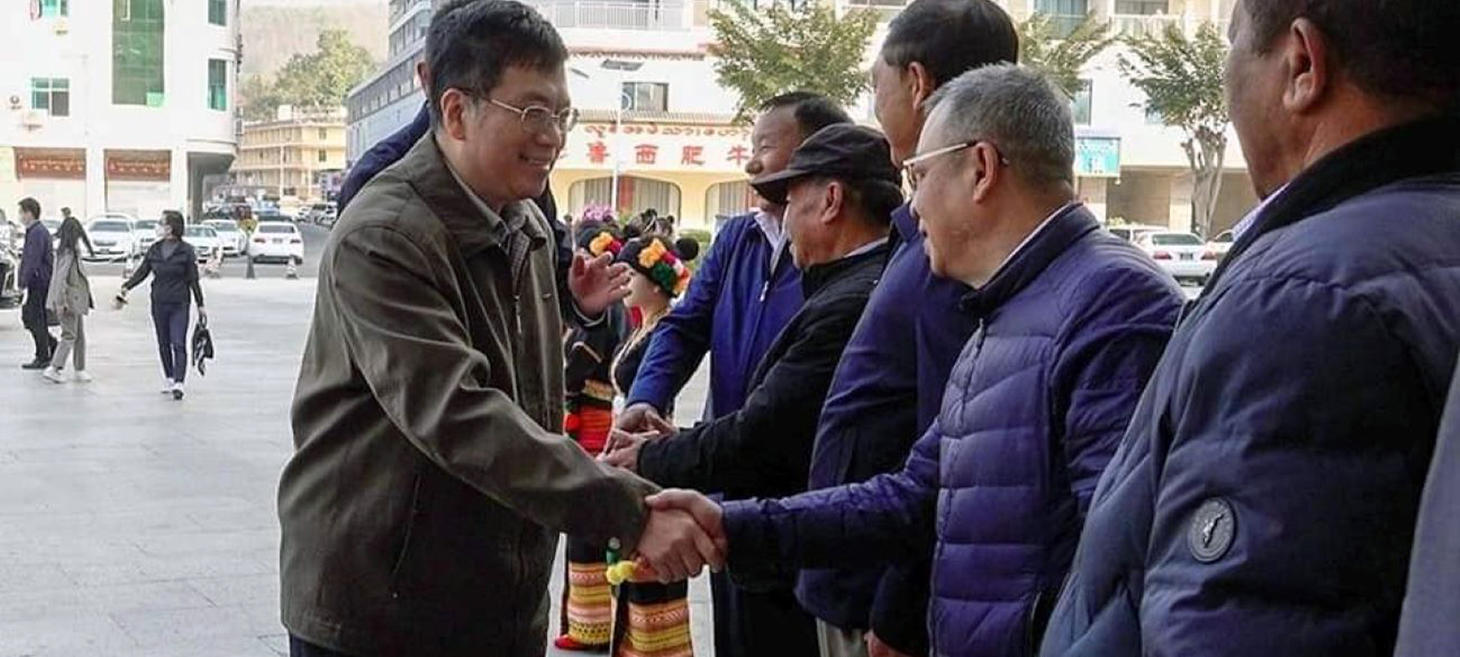
China Closes Border to Pressure Myanmar Ethnic Armies Into Peace Talks
China has closed its border with Myanmar, aiming to pressure ethnic armed groups into engaging in peace talks with the Myanmar military junta. This move is part of China's broader strategy to stabilize the region and protect its economic interests, including the China-Myanmar Economic Corridor. The closure affects trade and the movement of people, creating economic pressure on the ethnic armies by disrupting their revenue streams. The Chinese government has been actively involved in facilitating dialogue between the conflicting parties, seeking to end the ongoing conflicts that threaten regional stability. The border closure underscores China's significant influence in Myanmar's internal affairs and its vested interest in achieving peace in the region.
Military
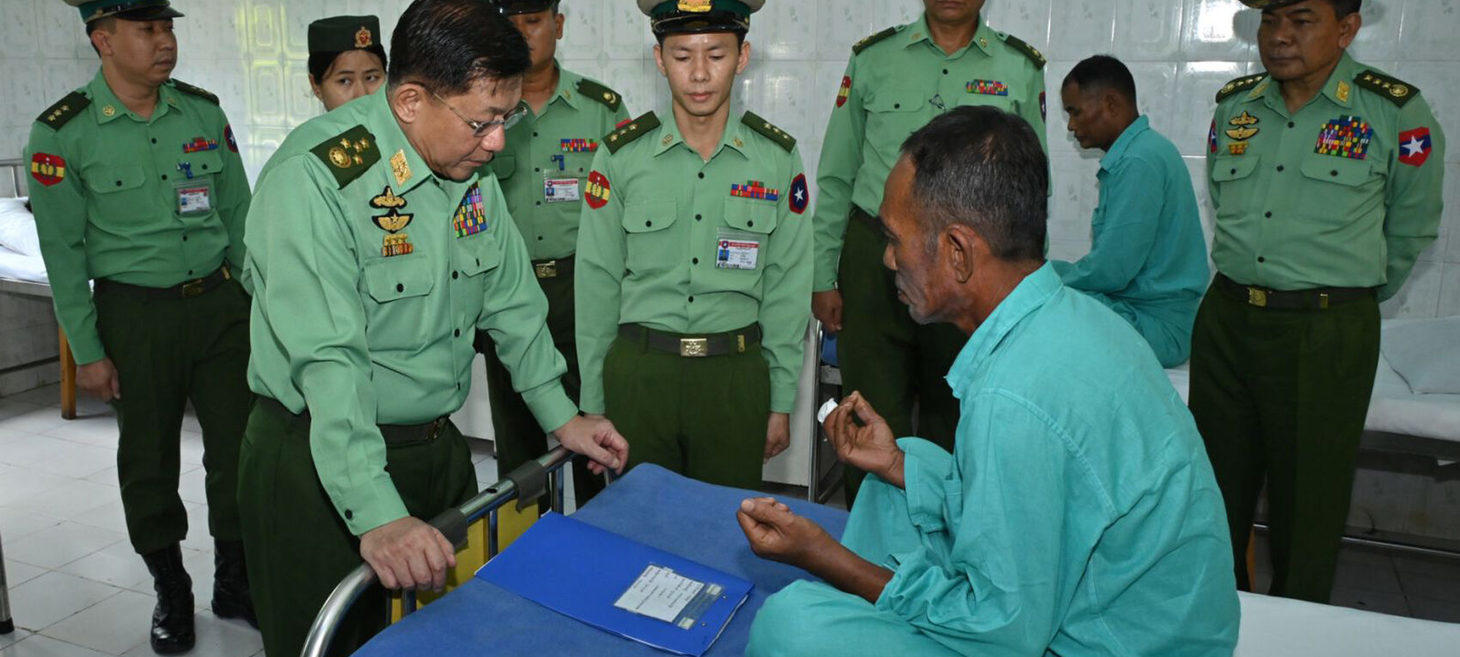
Myanmar Junta Boss Leaves Naypyitaw Fortress as Tide of Armed Resistance Rises
The Myanmar junta leader has reportedly vacated the secure confines of Naypyitaw amidst escalating armed resistance across the country. This departure marks a significant development, suggesting a potential weakening of junta control or an adjustment in strategy in response to the increasing effectiveness and reach of opposition forces. The move could have substantial implications for the stability of the junta's rule and the ongoing conflict dynamics within Myanmar.